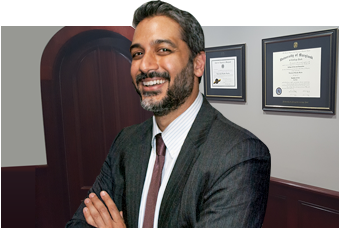Can Police Really Lie to You?

What do you think is the most defining and significant feature of police interrogations in America? According to renowned expert on interrogation techniques, Richard Leo, the answer is deception. That’s right—law enforcement agencies everywhere in this country regularly lie about the potential for leniency in exchange for a confession or cooperation in an investigation. Police might lie about evidence they have implicating you, including about what other witnesses may have said to implicate you. And yes, it is totally legal in the United States, despite being strongly restricted or even prohibited in most peer nations such as England, Germany, France, and Japan. Why is the practice allowed here, yet banned elsewhere?
The Goal
Clearly, deception is a way to manipulate a suspect’s understanding of their position. Once a suspect believes their options are eliminated and nothing short of a confession will get them out of the interrogation room, they may succumb to the pressure and give interrogators what they want. It could be said that the aim of law enforcement when they deceive a suspect is not necessarily to get to the truth. It’s really to get information, or, on the best of days, a confession. And unfortunately, that’s sometimes all that they get.
The Problem
Suspects who are lied to often confess. Regrettably, those confessions are not legit all too often. But when it comes to evidence in a criminal case, a confession is weighty, often contributing substantially to a wrongful conviction. According to the Innocence Project, nearly one-third of 375 wrongful convictions that were overturned involved false confessions that had been induced by law enforcement. In the case of overturned murder convictions, that number nearly doubled. And this is just one—albeit one very significant—issue with police deception.
Ethical Concerns
One huge issue with deceptive police practices is the ethics of lying to someone who is presumably innocent until proven guilty. Is this really the way to build public trust and confidence in the police, whose mission is to protect and serve the public? Moreover, doesn’t the very training of officers to influence through deception seem like a way to encourage deception across other aspects of the job?
Additional Issues
According to recent research, after lying in this context officers become more willing to lie in other, very troubling areas. Constitutional protections, civil liberties, and justice itself are at risk based on potential deceptions that these officers are more inclined to be involved in:
- Falsification of police reports;
- Inventing probable cause;
- Manufacturing consent;
- Perjury.
Although these actions are unethical and illegal, they are very difficult to prove and prosecute, let alone punish.
Did You Confess under Police Pressure?
If you are one of the thousands of individuals who have offered a false confession under questioning by police, you need the experienced and dedicated La Plata & Waldorf criminal defense attorneys at The Law Office of Hammad S. Matin, P.A. on your side more than ever. Contact us today to discuss.
Source:
reid.com/resources/whats-new/2019-an-example-of-how-dr-richard-leo-testifies-about-the-interrogation-process

